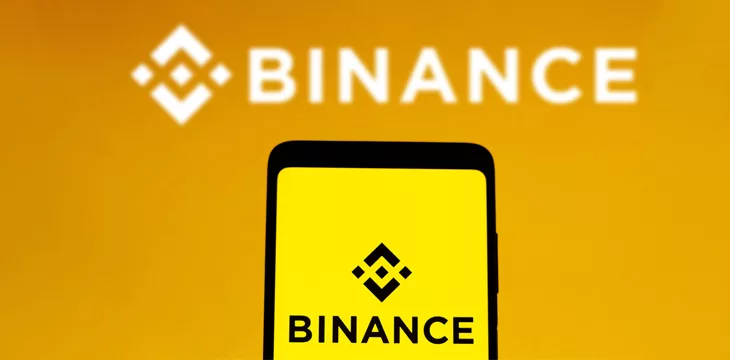|
Getting your Trinity Audio player ready...
|
Two prominent U.S. senators are calling for the Justice Department to investigate Binance over false statements the company made to lawmakers on March 1 when it responded to a Congressional inquiry about its business practices. Shortly thereafter, Binance.US announced that it would be losing its banking partners, forcing it to suspend USD deposits and withdrawals.
Binance accused of lying to Congress
Senators Elizabeth Warren and Chris Van Hollen made the request in a letter addressed to Attorney General Merrick Garland on Wednesday.
Senators had originally written to the CEOs of Binance and Binance.US on March 1, seeking information about their operations, compliance practices, Know Your Customer policies and the structure of the group—and in particular the relationship between Binance and Binance.US.
Binance and Binance.US returned a 14-page and five-page response, respectively—responses that the senators say were replete with lies. In particular, both Binance.US and Binance claimed that Binance and Binance.US are separate entities. This is something directly contradicted by the case alleged by the SEC, which says:
“Zhao and Binance created BAM Management and BAM Trading in the United States and claimed publicly that these entities independently controlled the operation of the Binance.US platform. Behind the scenes, however, Zhao and Binance were intimately involved in directing BAM Trading’s US business operations and providing and maintaining the crypto asset services of the Binance.US platform.”
In their responses, both companies also wrote that Binance.US had a ‘best-in-class’ compliance function and had ‘prioritized regulatory compliance’ including by preventing U.S. users from trading on the Binance platform.
That too turned out to be a lie. The senators cite the SEC’s claims that top Binance brass—specifically Changpeng Zhao—expressly told employees to help U.S. customers circumvent what scant geo-restrictions were in place and to do so surreptitiously. One internal communication revealed by the SEC is from the Binance CCO, who said that “on the surface we cannot be seen to have US users but in reality, we should get them through other creative means.”
Under 18 U.S.C. § 1001, knowingly making false statements or falsifying, concealing or covering up material facts in relation to Congressional inquiries is a crime carrying up to five years imprisonment. As a result, the senators ask that the Justice Department ‘conduct a rapid and thorough investigation’ into the matter.
Reads the senators’ request:
“In this case, a bipartisan group of Senators was seeking information on the cryptocurrency industry in order to inform an ongoing legislative process and determine whether new laws are needed to address the risks from cryptocurrencies and cryptocurrency exchanges—and it appears that Binance and Binance.US undermined this important investigation and the legislative process by providing false and misleading information to Congress.”
The senators published the 14-page response letter sent by Binance, available here. They said they would not release the Binance.US response publicly as it had been marked by the company as confidential—however, both responses were submitted to the Justice Department.
Lying to Congress is the tip of the iceberg
Between Binance’s response to Congress and the details now coming to light thanks to the SEC investigation, the senators have all but served up Binance to the Justice Department on a silver platter.
At the same time, making false statements to Congress is a drop in the bucket compared to the body of indictable activity Binance appears guilty of. Reuters reported in December that the DoJ was investigating Binance for money laundering and sanctions violations and that some prosecutors inside the department were ready to file criminal charges against its executives—including Zhao.
According to that report, a potential settlement with Zhao and Binance executives was on the table—something that now seems unlikely given the SEC charges and the inside look the world is about to get into Binance’s inner workings.
Facilitating money laundering and sanctions violations could be fit with any number of legal jigsaws, but would first and foremost amount to violations of the Bank Secrecy Act, which obliges financial institutions to take steps to curb money laundering taking place via their business. Each violation of the Bank Secrecy Act carries up to five years imprisonment, but if the violation forms part of a pattern of criminal activity the maximum prison sentence increases to 10 years.
What’s more, charges can be brought against both the company and its individual employees—a potentially lucrative source of leverage for prosecutors as the various regulators and law enforcement agencies bring cases against Binance.
This is something CEO Zhao seems to recognize, judging by the emails he’s been sending to staff since the SEC charges dropped:
SCOOP: Binance CEO CZ released an internal letter today to talk about the employee chat records disclosed by the SEC, saying that it has caused huge damage to the reputation; reminding employees that investigators will ask for your chat logs. And he cited this tweet first… pic.twitter.com/41g9KSIi93
— Wu Blockchain (@WuBlockchain) June 8, 2023
In other words: stop putting our criminal activity in writing.
Binance.US becomes ‘crypto-only’ exchange after being forced to suspend USD transactions
The building pressure from government is clearly having an effect on Binance’s ability to do business. The morning after the senators’ letter was made public, Binance.US announced via its Twitter account that it would be suspending USD deposits and was preparing to cease USD withdrawals. The platform is also delisting USD trading pairs.
The statement blames the SEC’s ‘extremely aggressive and intimidating tactics in its pursuit of an ideological campaign against the American digital asset industry’ for creating challenges for the company’s banking partners.
“Until we secure more stable banking partners, Binance.US will remain a crypto-only exchange—at least for a time.”
In other words: Binance has lost its access to U.S. banking. Again. Remember, Binance has already been forced to suspend USD deposits and withdrawals once before this year thanks to what Binance told users was an ‘administrative issue’ which later turned out to be Signature Bank’s pullback from crypto and eventual collapse. A month later, Binance had to suspend sterling deposits after the company lost its UK banking partner.
A Twitter user asked whether the suspension was for Binance.US or Binance in general, prompting a comical response from Binance.US which undermines its own claims about being ‘separate’ from Binance:
Hi Shaf, https://t.co/JKi0iQeb3T and https://t.co/X70bgbquCl operate as separate entities; therefore, any suspension related to USD deposits and withdrawals on https://t.co/X70bgbquCl would not directly affect https://t.co/JKi0iQeb3T.
However, it's always good to stay…
— Binance Customer Support (@BinanceHelpDesk) June 9, 2023
In other words: yes, we at Binance.US are a totally separate entity from Binance.com—if you want more information about this, please go to Binance.com.
On top of losing its U.S. banking partners, Binance’s main platform is currently experiencing mammoth outflows. In the past seven days, the exchange has seen $2.612 billion taken off the platform as users presumably run for the exits. Those people made the right move, judging by Binance.US’s new status as a ‘crypto-only’ exchange. How long before Binance proper suffers the same fate?
Gensler calls Binance & FTX ‘hucksters’
The senators’ letter also calls to mind Sam Bankman-Fried, who is notorious for plying lawmakers and government officials with false assurances regarding the compliance of his FTX empire—assurances which not only proved false, but also a calculated move to mislead them.
This week, SEC chair Gary Gensler in speaking at a Sandler Piper conference linked Binance and FTX with previous scams that have cropped up in the digital asset industry and beyond, saying “we’ve seen this story before.”
“With wide-ranging noncompliance, frankly, it’s not surprising that we’ve seen many problems in these markets. We’ve seen this story before. It’s reminiscent of what we had in the 1920s before the federal securities laws were put in place. Hucksters. Fraudsters. Scam artists. Ponzi schemes. The public left in line at the bankruptcy court.”
Gensler also attempted to cut through the oft-repeated claims that the problem is with a lack of clarity from regulators as opposed to non-compliance in the industry.
“As I’ve said numerous times, the vast majority of crypto tokens meet the investment contract test. Not liking the message isn’t the same thing as not receiving it.”
He referenced the more than 100 SEC orders, settlements and court decisions which spell out when the offer and sale of an asset amount to a security, and says that part of the commission’s case against Binance is that top executives actively reacted to these decisions and took steps internally to prepare for legal action to be taken against them (such steps did not include delisting securities, notably).
“When crypto asset market participants go on Twitter or TV and say they lacked ‘fair notice’ that their conduct could be illegal, don’t believe it. They have made a calculated economic decision to take the risk of enforcement as the cost of doing business.”
Follow CoinGeek’s Crypto Crime Cartel series, which delves into the stream of groups—from BitMEX to Binance, Bitcoin.com, Blockstream, ShapeShift, Coinbase, Ripple,
Ethereum, FTX and Tether—who have co-opted the digital asset revolution and turned the industry into a minefield for naïve (and even experienced) players in the market.

 08-14-2025
08-14-2025 





